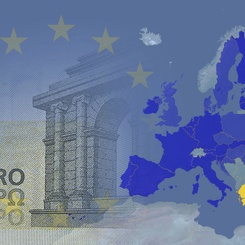Today, most states and some cities in the United States set their own minimum wages. Washington D.C., for example, currently has the highest minimum wage at $9.50 an hour. However, the municipality of Seattle decided last June to increase its own minimum wage to $15/hour. As of Aug. 1, 2014, 23 states and the Distric of Columbia had minimum wages above the federal minimum wage, while 18 others had theirs equal to it.
Notice that the federal minimum wage, contrary to most local ones, is not indexed on inflation. It only rises when Congress acts. Last time it did so was in 2009 when it hiked the federal minimum wage to $7.25 an hour, its present level. The problem is that the purchasing power of the federal minimum wage earners declines between readjustments. Since 2009, prices have increased by 12.5%, which means that in real terms the federal minimum wage has decreased by the same percentage over the past five years.
Given this loss in purchasing power, president Obama supports increasing the federal minimum wage to $10.10 per hour from its current $7.25 – a 44.8% raise. He claims that 76% of the American people support such a move. However, Congress is not willing to follow suit.
Opponents to minimum wage increases, and even to the existence of minimum wages per se, argue that they cause unemployment, especially among young and untrained workers. The reason is that an employee who doesn’t produce at least his wage’s value will not be hired (or will be fired). Hundred of empirical studies seem to confirm this assertion. But not all economists agree, claiming that new research methods lead to opposite conclusions.
How is such total disagreement possible? The reason is simple. The two sides use different research techniques. My own opinion is that by just comparing unemployment in two states, one where local minimum wage has been increased, the other one where it has remained stable – the way proponents of higher minimum wages do – means that a lot of important information gets forgotten. For example, even where minimum wages appear to remain stable, this is not always really the case. Furthermore, it’s also possible that the effect of minimum wages on employment may be spread over a longer period than the one tested, and therefore is not readily observable. For all these reasons (and a few others) minimum wages do cause unemployment.
Union activists in the fast food industry are insensitive to such arguments. They are staging impressive PR campaigns and strikes to have the minimum wages raised to $15, far above what the president wishes. Is such a demand realistic? Fast food restaurants have a low 3% margin before taxes while wages and payroll-taxes amount to 26% of sales. It is obvious that satisfying the unions would only be possible if hamburger prices are raised significantly (at least 66% according to a Heritage Foundation estimate).
Given that most fast food restaurant customers are low income earners, they are very sensitive to food prices. It has been estimated that a 10% increase in food prices would cause sales to drop by 9%. This means that in order to avoid losing money fast food restaurants would have to increase prices by much more than the initial increment in labor costs. The result would be that many restaurants would have to close for lack of enough customers while many of the surviving ones would replace human labor by labor-saving technologies. At the end, many jobs will be lost while the poorest part of the population would see their purchasing power negatively affected.
If the union demands are positively answered a country-wide experiment will show if indeed minimum wages causes unemployment or not.
Further Reading:
Florin AFTALION, Le salaire minimum, 2014.









